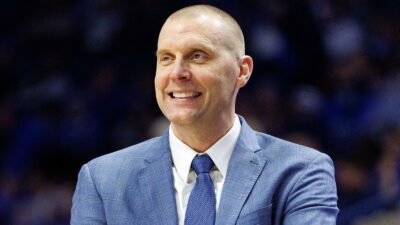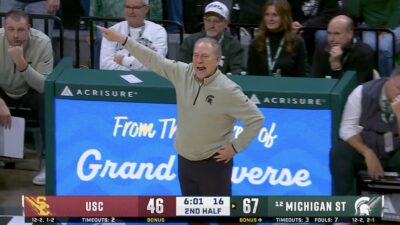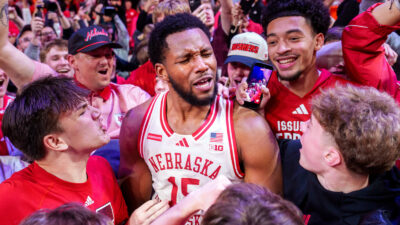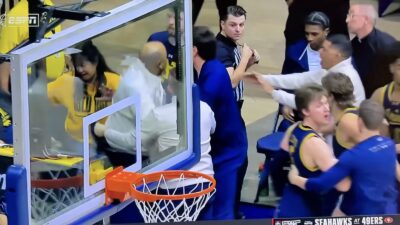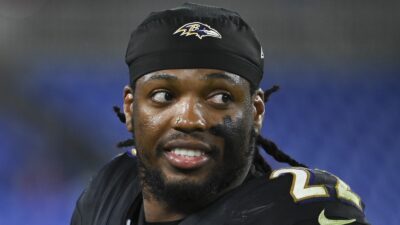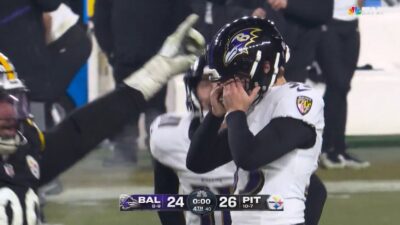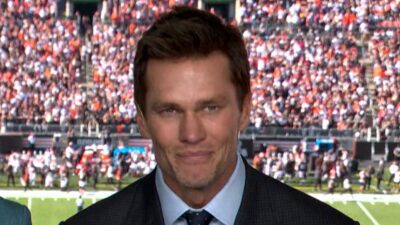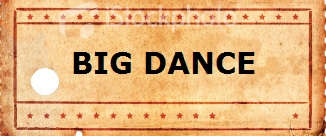
If you have ever happened upon a big dance, we would like to hear from you. If you know someone who has had their ticket punched, please let us know. Has your bubble burst lately? If it has, perhaps you should consult a gastroenterologist or, barring that, maybe a shaman. For some reason, however, these trite expressions of nebulousness are dusted off each year around the first week of March in the NCAA’s Pavlovian way to drum up interest for its annual four-week basketball tournament.
Yes, folks it’s that time of year again: Everything is in full bloom, the swallows fly north, and thought-provoking discourse flies south. The NCAA begins its annual march into the forefront of the national consciousness, while brackets are busted and Cinderellas leave their slippers somewhere in Dayton, or East Rutherford.
During my enthralling college journey en route to a communications degree — in other words, a time of heavy chemical experimentation — I learned the seemingly meaningless concept known as the magic bullet theory (not to be confused with Plaxico Burress’ alibi). I didn’t know it then, seeing as how I only took on the major to meet the kind of women who had aspirations of becoming weather girls, but that theory has served me well since I am now using it in a treatise about sports no less. How many times have you watched an excoriation of the NCAA Tournament by some talking head analyzing the field or probable field, and the expressions “Big Dance”, “on the bubble”, “dark horse”, or “tournament resume”, among others have been used? You’ve undoubtedly stumbled across the anachronistic concept of March sports talk novelty. My friends, you have been shot with the magic bullet seemingly prophesied by my professor in Comm 10.
Bless ESPN. They have become a leviathan since their start-up operation unfolded in 1979 as a national network televising a group of old ladies playing hearts. Today, they are a multinational and multimedia corporation broadcasting much younger men playing cards, while setting up Joe Lunardi in a bid for President in 2016. They have also introduced the world to bracket-busting and a field of science known as bracketology.
If you’re not familiar with college basketball academia, bracket-busting is the time-honored tradition of a school from upstate New York turning your recently-completed NCAA predictions into a piece of paper more worthless than Confederate money. Bracket-busting can also refer to a slow weekend in February, when the folks at the Network can match up a team from Long Beach, California and Omaha, Nebraska an event coincidentally forewarned by the Mayan calendar.
Bracketology, on the other hand, is apparently a field of science meant to engender ill-will toward any talking head giving me advice on picking Murray State in the Final Four. Ostensibly, this field of science is worthy enough to merit a separate Wikipedia page. Lunardi coined the term and teaches an online course at Saint Joseph’s University on the subject. Some part of me wishes I was still in school to take such a class. Alas, my years of college were spent meticulously studying the history of the Beatles and fluvial geomorphology. (As for the latter, sorry but I thought geography meant state capitals.) If only had I been able to take “Fundamentals of Bracketology”, I might have actually been compelled to take the cellophane off my textbooks, especially if the titles included Homer Drew’s “Odyssey”.
Of course, bubbles being burst and underdogs triumphing (against overdogs?) are well and good but, lest I should forget, this delicious piece of triteness all falls under the auspices of March Madness. Remember the old days when madness was used as an unflattering description for those who had gone off the deep end? Well those days are about as dated as a Grant Hill flat top.
Now, madness — March Madness — has come to stand as a diagnosis for why nothing will be accomplished in workplaces across the country for the next four weeks from Thursday through Sunday. I consulted my doctor for clarification on the symptoms of this well-known disorder. Unfortunately since my doctor is WebMD — hey, health insurance isn’t cheap — the answer to my query was accompanied by an advertisement for Yoplait yogurt. I did, however, get an article letting me know that getting too involved in March Madness can trigger cardiac-related death. Therefore, I’d like to take time out to thank UCLA basketball for helping to save my life yet again.
Little did Charles Perrault know that, when he came up with the concept of Cinderella sometime in the late 17th century, he was setting the stage for one of the most hackneyed college basketball clichés the world has ever known. Sure it may be a more apt reference from that period than, say, Cartesian philosophy, but at least Rene Descartes encouraged people to actually think. Though, here’s assuming that he probably would have taken the safe bet and chosen Kentucky to win it all. I doubt that it will happen, but one would hope Bob Wenzel and Jim Spanarkel give a shout-out to the scientific revolution before they start singing “Bibbidi-Bobbidi-Boo”.
Welcome to the Big Dance, folks. Watch your step for busted brackets. Hopefully, your tickets have been punched. You know what? Nah, forget it. I may just have to sit this one out. I’ve never been much of a dancer, anyway. Unless we’re talking about the polka.

